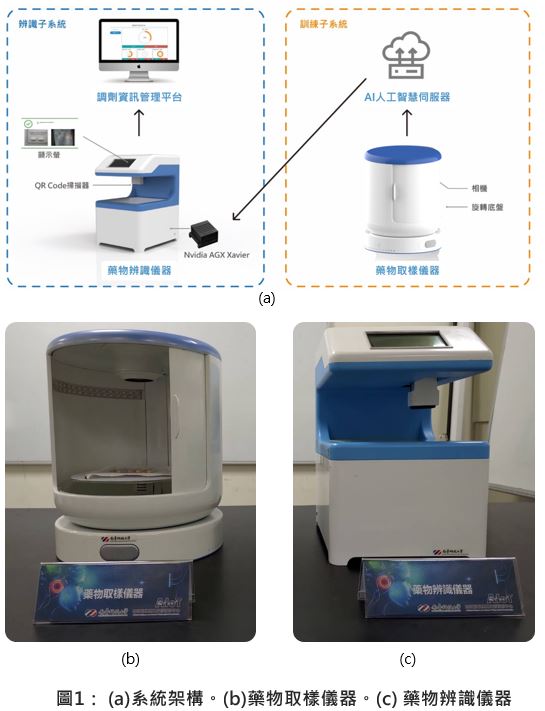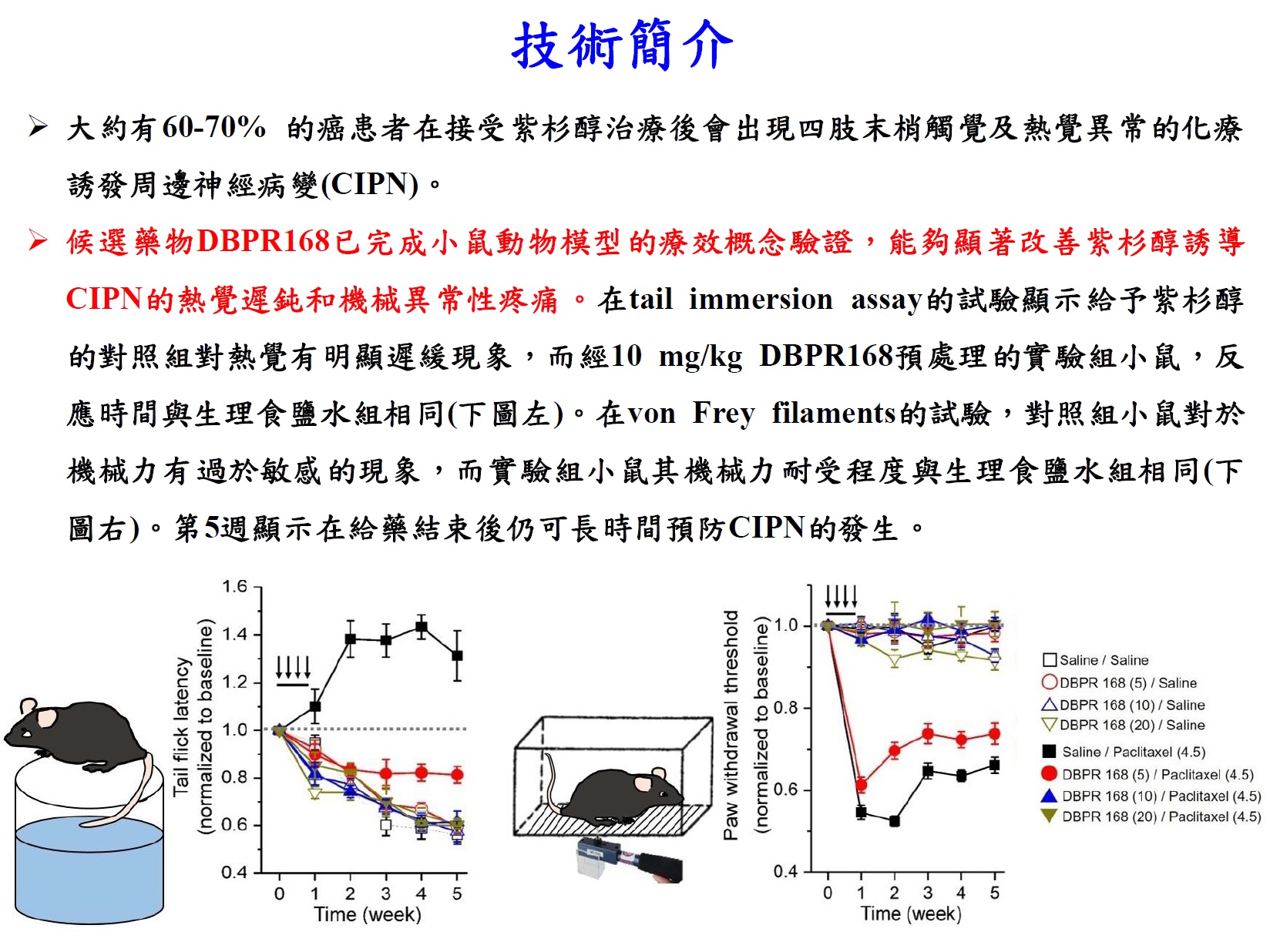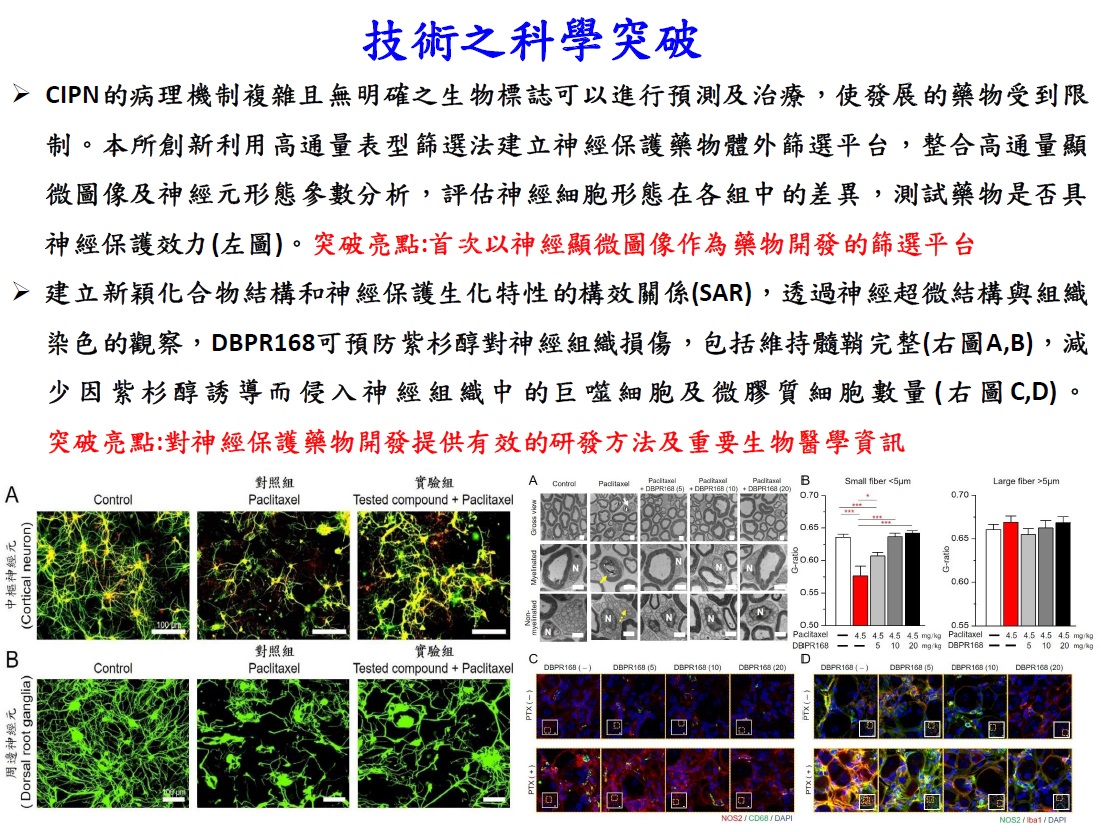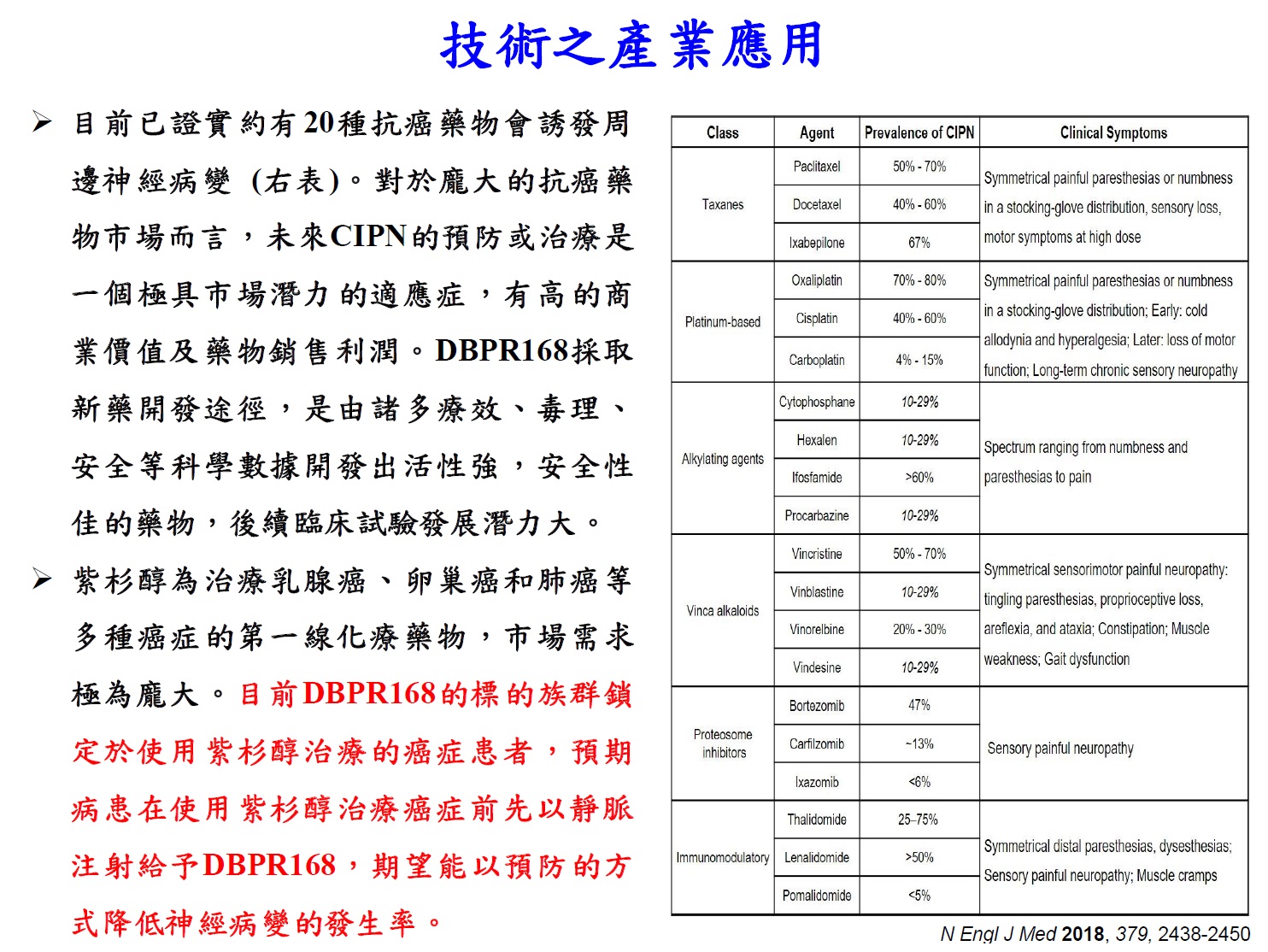| Technical Name | DBPR168: a potential neuroprotective drug against chemotherapy-induced peripheral neuropathy | ||
|---|---|---|---|
| Project Operator | National Health Research Institutes | ||
| Project Host | 夏克山 | ||
| Summary | Clinically, many cancer patients have been shown to develop chemotherapy-induced peripheral neuropathy after receiving paclitaxel. Unfortunately, these nerve impairments are usually irreversible and no available drugs can effectively alleviate these symptoms. Pretreatment with DBPR168 in two behavior mouse models of paclitaxel-induced neuropathy demonstrated that it could significantly alleviate both paclitaxel-induced thermal hypesthesia and mechanical allodynia adverse effects. |
||
| Scientific Breakthrough | Through combining a high-content screening platform with a novel neurite outgrowth assay on a series of analogues designed based on the hit compound CSV0A024807, a promising neuroprotective agent DBPR168 against paclitaxel-induced neuropathy was discovered, which has also been validated by two animal behavioral models in mice, including the tail immersion and von Frey filaments, revealing that it can significantly protect peripherally neural damage caused by paclitaxel treatment. |
||
| Industrial Applicability | Paclitaxel-induced peripheral neuropathy (CIPN), such as numbness and tingling, occurs frequently during treatment, not only leading to less quality of life, but also making patients quit therapy once severely. Pretreatment with DBPR168 can effectively protect CIPN caused by paclitaxel has been validated in two behavioral mouse models. Based on its high therapeutic window and excellent in vivo efficacy, DBPR168 have great potential to become the first-in-class agent against CIPN. |
||
| Keyword | chemotherapy-induced peripheral neuropathy neuroprotective agent paclitaxel neurite outgrowth assay pro-inflammatory cytokines chemokines macrophages dorsal root ganglia microglia mechanical allodynia | ||
- Contact
- Kak-Shan Shia
- ksshia@nhri.edu.tw
other people also saw







